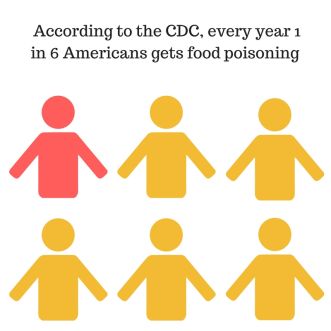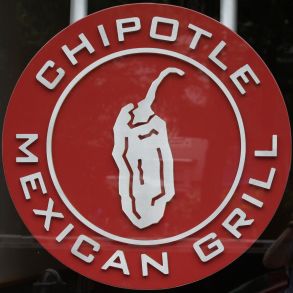
When trusting others with your food, how do you know for sure what you are eating is safe? Millions of Americans consume contaminated food products each year.
The Center for Disease Control (CDC) estimates that every year one in six Americans get food poisoning, which is a grand total of 48 million people each year. Food-borne illness, also known as food poisoning, can cause mild to severe symptoms such as upset stomach, nausea, vomiting, diarrhea, fever and dehydration. Vomiting should not exceed one to two days, and diarrhea should not exceed three to four days. One should seek medical attention if symptoms persist.
When food is not properly cooked, any harmful bacteria that is still on it can cause salmonella, E. coli and listeria, just to name a few. The Federal Drug and Food Administration (FDA) has food codes that are enforced nationally and they are updated every two to three years.
Cabrini uses a company called Sodexo to provide food for those on campus. The general manager for dining services, Tracy Eells, said Sodexo follows strict rules for food service. “We are audited by a third party auditor one time a year,” Eells said. The auditor this year is Ecosure.
Eells has worked with Sodexo for 13 years. She has been at Cabrini for two of those years. In that time, she said there has never been a case of food-borne illness with Sodexo.
“[During the audit, Ecosure] makes sure we have all our temperature logs, make sure we have thermometers, make sure we have refrigeration logs, we’re using proper cutting boards, we’re using gloves, that our dishwashers are coming up to the proper temperature, that we have the proper ratio of chemicals, there’s lists and lists and lists of things that we do every day,” Eells said.
For Sodexo, the process of food safety starts from the very beginning. “All of our food is purchased from approved vendors; in order to be a Sodexo-approved vendor their facilities must be audited by a third party as well to make sure that they live up to our standards,” Eells said.
According to Eells, after the food is received by Cabrini it is inspected for any damages. If there are damages, it gets sent back. From there, food must be placed in the proper cooling location.
“Once we begin to cook the food we need the temperature at certain stages to make sure it reaches proper temperature,” Eells said. “Once is it heated to proper temperature, we make sure we slice it on the proper cutting boards. We use certain colored boards for certain food products.” Eells also said there are certain steps for properly cooling and reheating food. All of this information must be logged.
All employees who work in the cafeteria are required to take classes. During this 10-16 hour class, employees learn proper procedures and regulations to teach how to properly handle food. At the end of this course, those enrolled are given a SERVSAFE certification.
Although Cabrini, Sodexo more specifically, has been fortunate enough to evade food-borne illness on this campus, other schools and companies have not been as fortunate.
Last year, Ursinus College had an outbreak of food poisoning from students eating in the cafeteria. The county heath inspection includes reports of minor food safety violations that could have been the root of the cause.
In August 2015, it was reported that about 200 people were sick with the norovirus from a Chipotle Mexican Grill located in California. Many other reports came out about salmonella poisoning at other locations.

Since the incident, Chipotle Mexican Grill has now put stricter and safer food restrictions in every location. For example, the lettuce is washed in a vinegar solution, then chopped and then washed again in an antibacterial solution and drained. For more information, click here.
Chipotle declined an interview regarding their new food safety laws. The food service manager of the Lancaster Avenue Chipotle was only able to speak briefly and anonymously. “Chipotle is trying to become the safest fast food chain.”
How safe is the food you are eating? Next time you walk into a restaurant, think about the risks you are taking if the food is not properly cared for. Pick your poison wisely.


